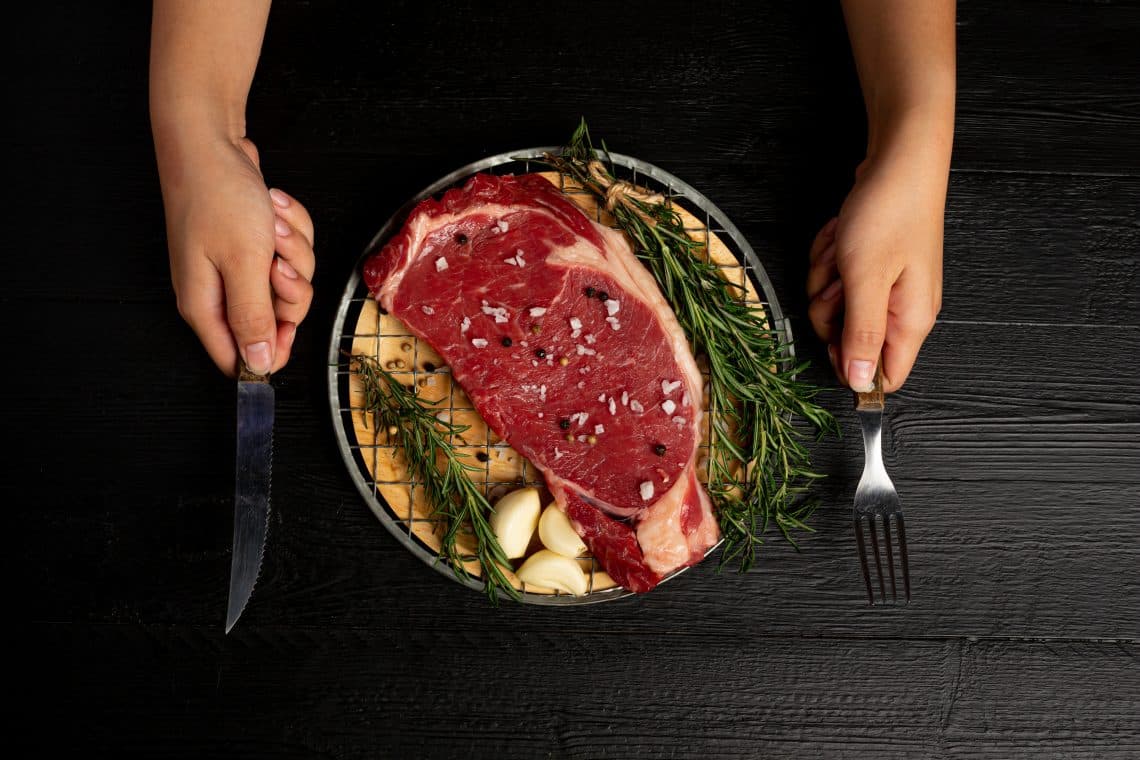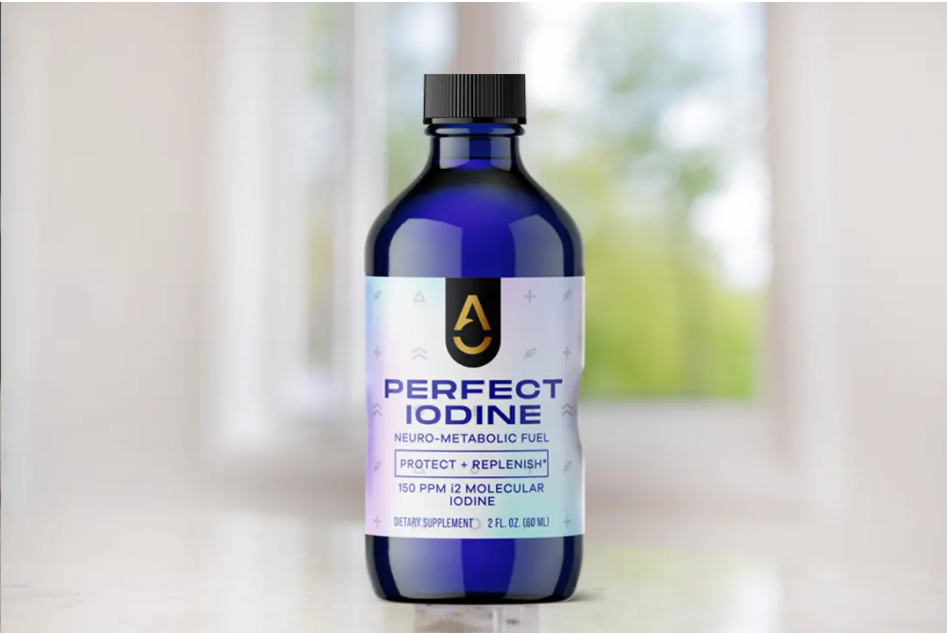What You Need To Know About The Carnivore Diet – An Overview of 7 Incredible Benefits, Risks, and Controversies
Exploring the Carnivore Diet: Benefits, Risks, and Controversies
Overview
The carnivore diet is a dietary approach that emphasizes eating only animal products and excludes all plant-based foods. It is also known as the “zero-carb” diet or “all-meat” diet. The primary foods consumed on a carnivore diet include meat, fish, eggs, and some dairy products, such as cheese and butter. The diet typically excludes all other foods, including fruits, vegetables, grains, nuts, seeds, and legumes.
Supporters of the carnivore diet claim that it can lead to various health benefits, including weight loss, improved mental clarity, increased energy, and reduced inflammation. They argue that humans evolved as carnivores and that consuming animal products exclusively is more natural for the human body.
However, the carnivore diet is highly controversial, and many health experts raise concerns about its long-term sustainability and potential health risks. Critics argue that the diet lacks essential nutrients found in plant-based foods, such as fiber, vitamins, minerals, and antioxidants. They also warn that the high intake of animal products could increase the risk of heart disease, cancer, and other chronic conditions.
While some individuals may experience short-term benefits on a carnivore diet, such as weight loss or improved digestion, it is essential to consider the potential risks and consult with a healthcare professional before making significant dietary changes.
What is the carnivore diet?

Proponents of the carnivore diet argue that humans evolved as carnivorous animals and that consuming animal products exclusively is more natural for the human body. They claim that the diet can lead to various health benefits, including weight loss, improved mental clarity, increased energy, and reduced inflammation.
However, the carnivore diet is highly controversial, and many health experts raise concerns about its long-term sustainability and potential health risks. Critics argue that the diet lacks essential nutrients found in plant-based foods, such as fiber, vitamins, minerals, and antioxidants. They also warn that the high intake of animal products could increase the risk of heart disease, cancer, and other chronic conditions.
While some individuals may experience short-term benefits on a carnivore diet, such as weight loss or improved digestion, it is important to consider the potential risks and consult with a healthcare professional before making significant dietary changes.
What foods to eat and what foods to avoid
On the carnivore diet, you primarily eat animal-based foods while avoiding plant-based foods. Here are some foods to eat and foods to avoid, along with explanations:
Foods to Eat:
- Meat: Beef, lamb, venison, and other types of meat are central to the carnivore diet. They provide protein, essential amino acids, and various vitamins and minerals.
- Fish: Fatty fish like salmon, mackerel, and sardines are rich in omega-3 fatty acids, which are important for heart and brain health.
- Eggs: Eggs are a good source of protein, vitamins, and minerals. They are also versatile and can be prepared in various ways.
- Dairy Products: Some versions of the carnivore diet include dairy products like cheese and butter, which provide fat and some essential nutrients like calcium and vitamin D.
Foods to Avoid:
- Fruits and Vegetables: All fruits and vegetables are excluded from the carnivore diet due to their carbohydrate content. This includes even low-carb vegetables like spinach and broccoli.
- Grains: Grains such as wheat, rice, oats, and barley are high in carbohydrates and are not consumed on the carnivore diet.
- Legumes: Beans, lentils, and other legumes are excluded because of their carbohydrate content.
- Processed Foods: Processed foods, including sugars, are avoided on the carnivore diet due to their potential negative effects on health.
Explanation: The carnivore diet is based on the belief that humans evolved as carnivorous animals and that consuming animal products exclusively is more natural for the human body. Proponents of the diet argue that plant-based foods contain antinutrients and other compounds that can be harmful to health and that animal products provide all the necessary nutrients for optimal health.
However, critics of the carnivore diet argue that excluding plant-based foods can lead to deficiencies in essential nutrients like fiber, vitamins, and antioxidants, which are important for overall health. They also raise concerns about the potential long-term health effects of a diet high in animal products, including an increased risk of heart disease, cancer, and other chronic conditions.
It’s important to note that the carnivore diet is highly restrictive and may not be suitable for everyone. Before starting any new diet, it’s recommended to consult with a healthcare professional to ensure it is safe and appropriate for your individual needs.
Health benefits of carnivore diet
The carnivore diet has been proposed to offer several health benefits, although much of the evidence is anecdotal or based on individual experiences. Some of the suggested benefits include:
- Weight Loss: By eliminating carbohydrates and focusing on protein and fat, the carnivore diet may lead to weight loss for some individuals. This effect is likely due to reduced calorie intake and improved satiety from protein and fat-rich foods.
- Improved Blood Sugar Control: Some people report better blood sugar control on a carnivore diet, possibly due to the absence of carbohydrates that can spike blood sugar levels.
- Reduced Inflammation: Proponents claim that eliminating potentially inflammatory foods like grains and processed sugars can reduce overall inflammation in the body, which may benefit conditions like arthritis.
- Improved Mental Clarity: Some individuals report improved mental clarity and focus on the carnivore diet, which could be related to stable blood sugar levels and the brain’s use of ketones for fuel in the absence of carbohydrates.
- Simpler Digestion: For some people, eliminating complex carbohydrates and plant fibers can lead to simpler digestion and reduced digestive issues like bloating and gas.
- Potential Benefits for Autoimmune Conditions: Some proponents suggest that the carnivore diet may benefit those with autoimmune conditions by reducing inflammation and possibly altering the gut microbiome.
- Management of Certain Health Conditions: Some individuals with conditions like irritable bowel syndrome (IBS), small intestinal bacterial overgrowth (SIBO), and other digestive issues report symptom improvement on a carnivore diet, possibly due to the elimination of potentially irritating foods.
It’s important to note that much of the evidence supporting these benefits is anecdotal, and more research is needed to understand the long-term effects
Who should eat the carnivore diet and who shouldn’t?
The carnivore diet is a highly restrictive diet that may not be suitable for everyone. While some individuals may experience benefits from following this diet, others may face health risks or nutritional deficiencies. Here’s a general overview of who might consider the carnivore diet and who should approach it with caution or avoid it altogether:
Who Might Consider the Carnivore Diet:
- Those with Specific Health Conditions: Some individuals with certain health conditions, such as autoimmune disorders, digestive issues (like IBS or SIBO), or metabolic disorders, may find relief from symptoms on a carnivore diet. However, this should be done under the guidance of a healthcare professional.
- People Seeking Weight Loss or Metabolic Health Improvement: Some people may experience weight loss and improvements in metabolic health markers, such as blood sugar levels and cholesterol, on a carnivore diet. However, long-term effects on overall health are not well understood.
- Individuals Interested in Personal Experimentation: Some individuals may choose to try the carnivore diet out of curiosity or as a personal experiment to see how their body responds. It’s essential to monitor health closely and make informed decisions based on individual experiences.
Who Should Approach the Carnivore Diet with Caution or Avoid It:
- Pregnant or Breastfeeding Women: The carnivore diet may not provide sufficient nutrients for pregnant or breastfeeding women and could potentially harm the health of the mother and baby.
- Children and Adolescents: Children and adolescents have different nutritional needs for growth and development, and a restrictive diet like the carnivore diet may not provide adequate nutrients.
- People at Risk of Nutrient Deficiencies: Individuals who are at risk of nutrient deficiencies, such as older adults or those with certain health conditions, should approach the carnivore diet with caution and consider potential supplementation.
- Those with a History of Eating Disorders: The strict rules and focus on food restriction in the carnivore diet may trigger or exacerbate eating disorder behaviors in susceptible individuals.
- People with Kidney Issues: The high protein content of the carnivore diet may put additional strain on the kidneys, especially in individuals with pre-existing kidney issues.
Before starting the carnivore diet or any other restrictive diet, it’s crucial to consult with a healthcare professional or a registered dietitian to ensure that it is safe and appropriate for your individual health needs and goals.
What are the risks and side effects?
While some proponents of the carnivore diet claim various health benefits, there are also potential risks associated with this diet. These risks include:
- Nutrient Deficiencies: Since the diet restricts or eliminates plant-based foods, there is a risk of nutrient deficiencies, including fiber, vitamins (such as vitamin C), minerals (such as magnesium and potassium), and phytonutrients found in fruits and vegetables.
- Increased Risk of Heart Disease: A diet high in animal fats and proteins, especially if they are processed or contain high levels of saturated fats, may increase the risk of heart disease, particularly if it leads to high cholesterol levels.
- Risk of Kidney Stones: A high intake of protein, especially from animal sources, can increase the risk of kidney stones, particularly in individuals predisposed to this condition.
- Digestive Issues: Some individuals may experience digestive issues such as constipation or diarrhea due to the lack of fiber and other nutrients found in plant-based foods.
- Potential Negative Effects on Gut Health: The lack of fiber and variety of foods in the diet may negatively impact the diversity of gut microbiota, which is important for overall health.
- Increased Cancer Risk: Some studies suggest that a high intake of red and processed meats may be associated with an increased risk of certain types of cancer, such as colorectal cancer.
- Long-Term Sustainability: The restrictive nature of the carnivore diet may make it challenging to maintain in the long term, which could lead
to nutritional imbalances and health issues over time.
- Social and Psychological Impact: The diet’s strict rules may lead to social isolation or anxiety in social situations where only plant-based options are available, which could impact mental health.
It’s essential to consider these risks and consult with a healthcare professional before starting any new diet, especially one as restrictive as the carnivore diet.
What is the difference between the Carnivore diet Vs. Keto diet?
The carnivore diet and the keto (ketogenic) diet are both low-carbohydrate diets, but they have some key differences in terms of food choices and principles:
Carnivore Diet:
- Focus: The carnivore diet is centered around consuming animal products exclusively, such as meat, fish, eggs, and some dairy products. It excludes all plant-based foods, including fruits, vegetables, grains, nuts, seeds, and legumes.
- Carbohydrate Intake: The carnivore diet is extremely low in carbohydrates, as it eliminates all sources of plant-based carbohydrates.
- Protein and Fat Intake: The diet is high in protein and fat, primarily from animal sources. Fat intake can vary depending on the types of animal products consumed.
- Ketosis: While some people on the carnivore diet may enter a state of ketosis due to the low carbohydrate intake, the diet is not specifically designed to achieve or maintain ketosis.
Keto Diet:
- Focus: The ketogenic diet focuses on low-carbohydrate, moderate-protein, and high-fat intake. It includes a variety of foods, such as meats, fish, eggs, non-starchy vegetables, nuts, seeds, and healthy fats.
- Carbohydrate Intake: The keto diet restricts carbohydrates to a very low level, typically around 20-50 grams per day, to induce and maintain a state of ketosis.
- Protein and Fat Intake: Protein intake is moderate on the keto diet, as excessive protein intake can potentially interfere with ketosis. Fat intake is high, with fats providing the majority of calories.
- Ketosis: The primary goal of the keto diet is to achieve and maintain a state of ketosis, where the body burns fat for fuel instead of carbohydrates.
Key Differences:
- Plant-Based Foods: The carnivore diet excludes all plant-based foods, while the keto diet includes non-starchy vegetables, nuts, seeds, and other plant-based sources of nutrients.
- Protein Intake: The carnivore diet typically results in higher protein intake compared to the keto diet, which emphasizes moderate protein intake to avoid gluconeogenesis (the process by which protein is converted into glucose).
- Ketosis Focus: While both diets may result in ketosis, the carnivore diet is not specifically designed to achieve or maintain ketosis, whereas ketosis is a central aspect of the ketogenic diet.
In summary, while both the carnivore diet and the keto diet are low-carbohydrate approaches, the carnivore diet is more restrictive, focusing exclusively on animal products, while the keto diet includes a wider variety of foods and is specifically designed to achieve and maintain ketosis.
After thoughts
The carnivore diet is a highly restrictive dietary approach that focuses exclusively on animal products while excluding all plant-based foods. Proponents of the diet claim various health benefits, including potential weight loss, improved blood sugar control, reduced inflammation, and improved mental clarity. However, there are also significant concerns and potential risks associated with the carnivore diet.
One of the main concerns is the risk of nutrient deficiencies, as the diet eliminates important sources of fiber, vitamins, minerals, and antioxidants found in plant-based foods. This lack of variety in food choices may also impact the diversity of gut microbiota, which is important for overall health. Additionally, the high intake of animal fats and proteins, especially if they are processed or contain high levels of saturated fats, may increase the risk of heart disease and other chronic conditions.
While some individuals may experience short-term benefits on the carnivore diet, such as weight loss or improved digestion, it is essential to consider the potential long-term health effects and risks associated with this diet. I am of the belief that all diets should be cyclical. This means you should not stay on any one diet indefinitely. It is advisable to consult with a healthcare professional before starting the carnivore diet or any other restrictive diet to ensure that it is safe and appropriate for individual health needs and goals.
Overall, more research is needed to fully understand the effects of the carnivore diet on health, and individuals should approach this diet with caution and make informed decisions based on balanced and evidence-based dietary choices. When shopping for your make they are grass-fed/grass-finished, pasture-raised, or wild-caught, and avoid pork and bottom dwellers such catfish, shrimp, lobster, and other shellfish.
Consider incorporating some protein and the 360 Cookware for an amazing cooking experience and enjoy the benefits of revitalized optimal health.
For natural and healing remedies, products, and supplements to help you live your most optimal healthy life, visit our store here!
Save 15% Off All Cookware & Bakeware from 360 Cookware and use code: COOKWARE15
Remember: Own Your Health!
If you enjoyed the information presented in this article, Please Share It. Help us reach more people and keep this website going! Thank you!
Note: The information provided in this article is for educational purposes only and should not be considered medical advice. Please consult with a healthcare professional or registered dietitian before making any significant changes to your diet or lifestyle.
References:
- “The Carnivore Diet: Is Eating ONLY Meat Healthy, or Totally F@#$ing Crazy?” by Kamal Patel, published on Examine.com, accessed on April 19, 2024. The Carnivore Diet: Is the All-meat Diet Healthy or Crazy? (onnit.com)
- “The Carnivore Diet: What You Need to Know” by Rachael Link, MS, RD, published on Dr. Axe, updated on July 23, 2020.
- www.heartandsoil.co/blog/
- What’s the Carnivore Diet? – A Beginner’s Guide (2024) (carnivorestyle.com)
- The Beginner’s Guide to the Carnivore Diet – Heart & Soil Supplements (heartandsoil.co)




























1 Comment
[…] is vital for muscle protein synthesis and helps prevent muscle breakdown, making it beneficial for athletes and individuals undergoing […]